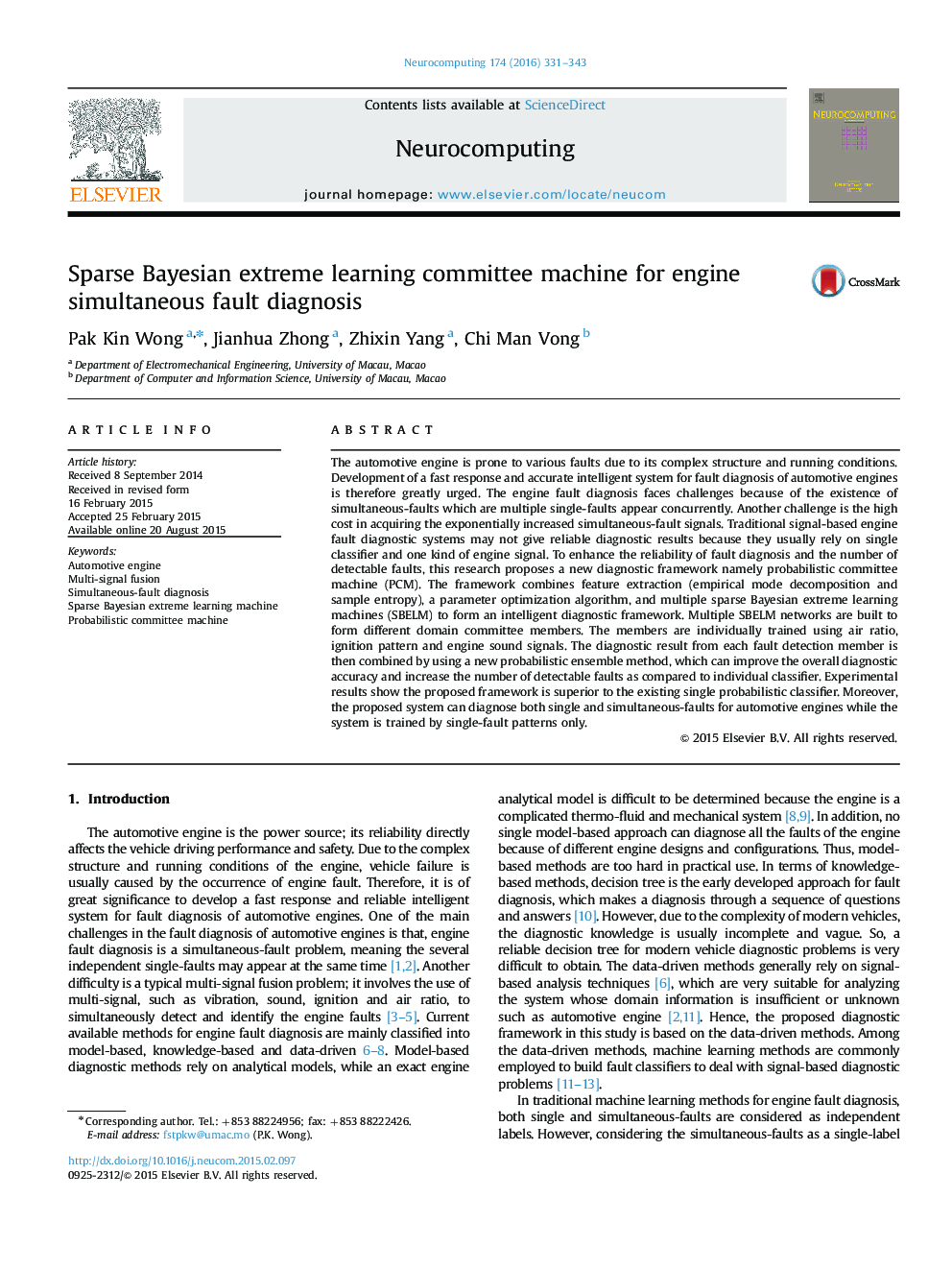| Article ID | Journal | Published Year | Pages | File Type |
|---|---|---|---|---|
| 406147 | Neurocomputing | 2016 | 13 Pages |
The automotive engine is prone to various faults due to its complex structure and running conditions. Development of a fast response and accurate intelligent system for fault diagnosis of automotive engines is therefore greatly urged. The engine fault diagnosis faces challenges because of the existence of simultaneous-faults which are multiple single-faults appear concurrently. Another challenge is the high cost in acquiring the exponentially increased simultaneous-fault signals. Traditional signal-based engine fault diagnostic systems may not give reliable diagnostic results because they usually rely on single classifier and one kind of engine signal. To enhance the reliability of fault diagnosis and the number of detectable faults, this research proposes a new diagnostic framework namely probabilistic committee machine (PCM). The framework combines feature extraction (empirical mode decomposition and sample entropy), a parameter optimization algorithm, and multiple sparse Bayesian extreme learning machines (SBELM) to form an intelligent diagnostic framework. Multiple SBELM networks are built to form different domain committee members. The members are individually trained using air ratio, ignition pattern and engine sound signals. The diagnostic result from each fault detection member is then combined by using a new probabilistic ensemble method, which can improve the overall diagnostic accuracy and increase the number of detectable faults as compared to individual classifier. Experimental results show the proposed framework is superior to the existing single probabilistic classifier. Moreover, the proposed system can diagnose both single and simultaneous-faults for automotive engines while the system is trained by single-fault patterns only.
